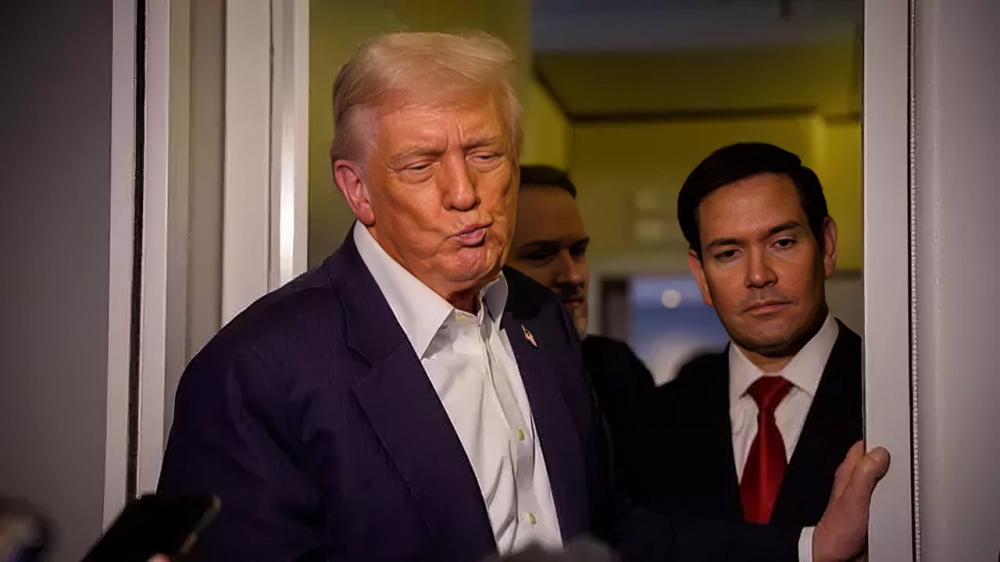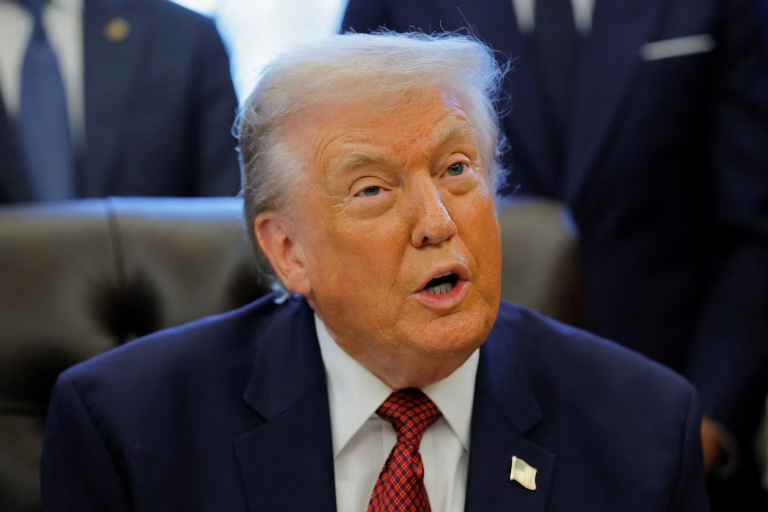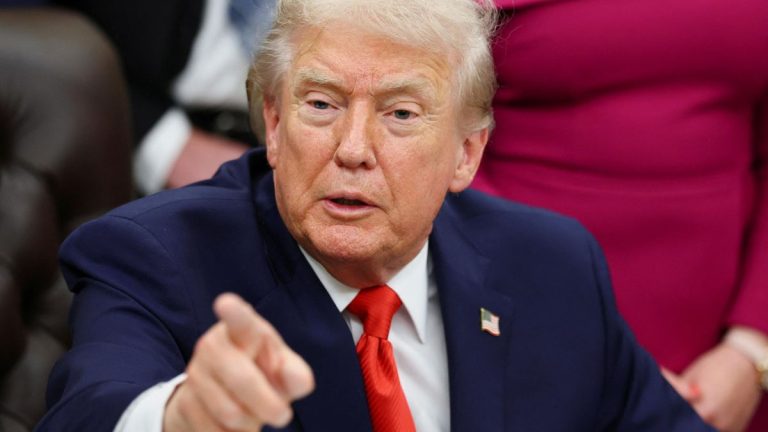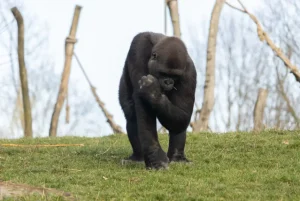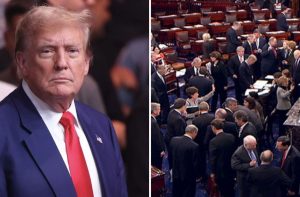WASHINGTON, D.C. — President Donald Trump is addressing renewed speculation about whether he could seek to extend his time in the White House beyond the traditional two-term limit — an idea he insists he finds “too cute,” even as he leaves open questions about his long-term political ambitions.
Speaking to reporters aboard Air Force One earlier this week, the president dismissed claims that he might attempt to use a legal workaround to serve a third term, calling such a move “not right.” But his remarks, paired with his ongoing public hints and campaign-style messaging, continue to fuel discussion over whether Trump might eventually test the limits of the 22nd Amendment.
“I think people wouldn’t like that,” Trump said when asked about the possibility of using what some have described as a “vice-presidential loophole.” “It’s too cute. It wouldn’t be right.”
Hints, Headlines, and a 2028 Tease
Ten months into his second term, Trump’s political presence remains dominant — and his comments, deliberate or not, often send waves through both Washington and the media cycle. Over recent months, his team has released campaign merchandise emblazoned with “Trump 2028,” prompting speculation that he might be signaling a willingness to test constitutional boundaries.
The 22nd Amendment to the U.S. Constitution clearly states that “no person shall be elected to the office of the President more than twice.” The clause was adopted in 1951 following Franklin D. Roosevelt’s four-term presidency and has since defined presidential eligibility.
Yet Trump’s offhand remarks have occasionally invited debate over whether the text allows for alternative interpretations. Earlier this year, he hinted that “there are methods” to extend his leadership if voters wanted him to remain in office.
“A lot of people want me to keep going,” he told supporters in March. “We’ll see what happens. There are ways.”
That statement — coupled with his strong polling numbers and frequent public appearances — reignited talk of a potential third-term scenario, though the president and his advisers have stopped short of directly endorsing such a move.
The “Vice President” Path — and Why It’s Unlikely
Among the more discussed theories in recent weeks is a constitutional curiosity: the idea that Trump could run as a vice presidential candidate on another Republican’s ticket, then potentially assume office if that president were to leave the position.
This speculation hinges on the 25th Amendment, which outlines presidential succession, and the 12th Amendment, which bars anyone “constitutionally ineligible to the office of President” from serving as vice president. Legal scholars have long debated whether that phrasing would block a twice-elected president from running for the vice presidency — or whether it leaves room for ambiguity.
While some commentators have described it as a “loophole,” most constitutional experts agree it would face immediate legal challenges and near-certain rejection by the courts.
Trump appeared aware of that tension when he addressed the idea directly.
“I could do it, technically,” he said with a grin, before adding, “but people wouldn’t like that.”
According to those traveling with the president, the remark drew laughter from staffers but also underscored Trump’s awareness of the controversy surrounding the suggestion.
A Possible Succession — and Political Theater
In his comments Monday, Trump floated names of prominent allies he believed could form what he called an “unstoppable” future ticket — including Vice President JD Vance and Secretary of State Marco Rubio.
“I’m not sure anyone would run against those two,” Trump said. “If they ever teamed up, it would be unstoppable.”
The president’s reference to a hypothetical Vance-Rubio alliance was viewed by some observers as both praise and political calculation — a signal that Trump is already shaping the next generation of Republican leadership even while declining to confirm his own plans.
When pressed about whether he personally intends to seek another run after his current term, Trump’s response was characteristically coy.
“You’ll have to tell me,” he told reporters, before adding with a smile, “I’d love to do it, but we have a lot of great people — and I’ve got the best poll numbers I’ve ever had.”
He also emphasized his enjoyment of the job, remarking that he “likes working” and sees no reason to slow down despite his age. Trump will be 82 years old by the end of his second term.
Constitutional Debate Reignited
The notion of a third Trump presidency has reignited longstanding questions about presidential term limits and the balance of power between democratic principles and popular will.
Constitutional scholars emphasize that the 22nd Amendment’s language is among the most explicit in American law — leaving little doubt that a third election victory would be unconstitutional.
Still, political scientists note that the conversation reflects how Trump has consistently challenged traditional expectations of presidential behavior.
“Trump thrives on keeping possibilities open,” said one historian of modern presidencies. “Even when he says he won’t do something, the mere suggestion that he could sparks debate — and that keeps him in control of the narrative.”
The White House did not release a formal transcript of the exchange aboard Air Force One, but aides later clarified that the president “was simply making lighthearted comments” and has no intention of testing constitutional limits.
Public Reaction and Political Strategy
Trump’s remarks come amid a period of strong approval ratings among Republican voters and renewed fundraising momentum heading into the midterm cycle. The “Trump 2028” merchandise, campaign-style rallies, and steady media appearances have fueled perceptions that the president is laying groundwork for extended influence — even if not another term in office.
Analysts say the third-term conversation may also serve a tactical purpose: reinforcing Trump’s image as an enduring political force whose leadership, in his view, cannot easily be replaced.
“It’s both messaging and movement-building,” said a senior campaign strategist not affiliated with the White House. “By floating the idea — and then stepping back from it — he reminds supporters that he’s indispensable, while appearing to respect the rules.”
Within Republican circles, the topic has divided opinion. Some lawmakers have publicly dismissed the speculation as “idle chatter,” while others see value in Trump’s ability to dominate headlines and shape the public conversation around presidential power.
The Broader Political Climate
The discussion over term limits comes at a time when the administration is juggling multiple priorities — from economic stabilization efforts to foreign policy challenges. Trump continues to emphasize his commitment to “America First” trade and energy policies, while congressional Republicans push forward with legislation designed to cement his agenda beyond his presidency.
Meanwhile, former Vice President Kamala Harris recently indicated she would consider entering the next presidential race, adding another layer of political intrigue to an already uncertain landscape.
Harris, who served under President Biden, has maintained a visible presence on the national stage and continues to draw support from key segments of the Democratic base. Her possible return to the campaign trail could set up a dynamic political contrast in the coming years.
Looking Ahead
While Trump has stated that exploiting the vice-presidential path would be “too cute,” his words leave room for interpretation. The president’s willingness to publicly muse about third-term possibilities — while denying any concrete plan — ensures that the topic remains alive both legally and politically.
Observers say this strategy mirrors Trump’s broader approach: keeping opponents guessing while energizing supporters who see him as defying convention.
For now, constitutional scholars and political watchers agree on one point: the 22nd Amendment remains firm. But in an era defined by political disruption and personality-driven movements, even the suggestion of testing its limits is enough to keep Washington — and the public — on edge.

James Jenkins is a celebrated Pulitzer Prize-winning author whose work has reshaped the way readers think about social justice and human rights in America. Raised in Atlanta, Georgia, James grew up in a community that instilled in him both resilience and a strong sense of responsibility toward others. After studying political science and creative writing at Howard University, he worked as a journalist covering civil rights issues before dedicating himself fully to fiction. His novels are known for their sharp, empathetic portraits of marginalized communities and for weaving personal stories with broader political realities. Jenkins’s breakout novel, Shadows of Freedom, won national acclaim for its unflinching look at systemic inequality, while his more recent works explore themes of identity, resilience, and the fight for dignity in the face of oppression. Beyond his novels, James is an active public speaker, lecturing at universities and participating in nonprofit initiatives that support literacy and community empowerment. He believes that storytelling is a way to preserve history and inspire change. When not writing, James enjoys jazz music, mentoring young writers, and traveling with his family to explore cultures and stories around the world.




